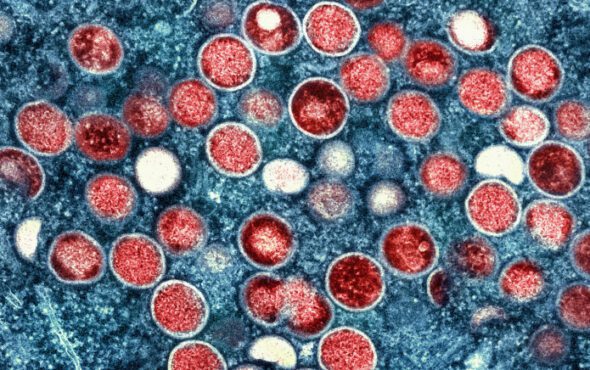
The World Health Organization (WHO) has declared the monkeypox outbreak a global health emergency.
Over the last few months, various countries worldwide have seen a massive increase in monkeypox cases.
Due to the alarming rate of infections, WHO recently declared the outbreak as a global health emergency – which is the highest alert within the organisation.
During a press conference on 23 July, WHO Director General Dr Tedros Adhanom Ghebreyesus said that a committee was formed to assess the new data regarding the virus.
However due to conflicting opinions, the group was unable to reach a consensus. Because of this, Adhanom Ghebreyesus said that he made the executive decision to declare a global emergency.
“In short, we have an outbreak that has spread around the world rapidly through new modes of transmission about which we understand too little and which meets the criteria in the international health regulations,” he explained.
“For all of these reasons, I have decided that the global monkeypox outbreak represents a global health emergency of international concern.”
According to the Centers for Disease Control and Prevention, over 16,000 cases of monkeypox have been reported across 75 countries.
“Although I am declaring a public health emergency of international concern for the moment, this is an outbreak that is concentrated among men who have sex with men, especially those with multiple sexual partners,” he continued.
With the tools we have right now, we can stop #monkeypox transmission and bring this outbreak under control. It’s essential that all countries work closely with affected communities to adopt measures that protect their health, human rights and dignity.pic.twitter.com/DqyvRtB8w2
— Tedros Adhanom Ghebreyesus (@DrTedros) July 23, 2022
“That means that this is an outbreak that can be stopped with the right strategies in the right groups.”
Adhanom Ghebreyesus went on to encourage countries to “design and deliver effective information and services” to protect the “health, human rights and dignity of affected communities.”
Even though monkeypox has mostly affected men who have sex with men, the global health organisation has stressed that anyone is susceptible to contracting the virus.
“Stigma and discrimination can be as dangerous as any virus,” Adhanom Ghebreyesus added.
With WHO officially declaring a global emergency, health officials have expressed hope that more vaccines and protective measures will start being pushed to the forefront.
“I think it would be better to be proactive and overreact to the problem instead of waiting to react when it’s too late,” said Michael Head, a senior research fellow in Global Health at Southampton University.
The recent monkeypox development comes a few days after the UK Health Security Agency (UKHSA) secured 100,000 additional vaccine doses.
“Monkeypox is a rare and usually mild disease that does not spread easily between people, but we are taking action to help further manage the outbreak in the UK by procuring over 100,000 additional doses of vaccine,” said Health Secretary Steve Barclay.
“The NHS is already contacting those eligible for the vaccine, and I would urge people to take up the offer as soon as they are contacted. In the meantime, please contact a sexual health clinic if you notice any unusual rashes or lesions.”
As of 21 July, there were 2,208 confirmed cases in the UK – 2,115 of which were in England.
To learn more about monkeypox, click here.



